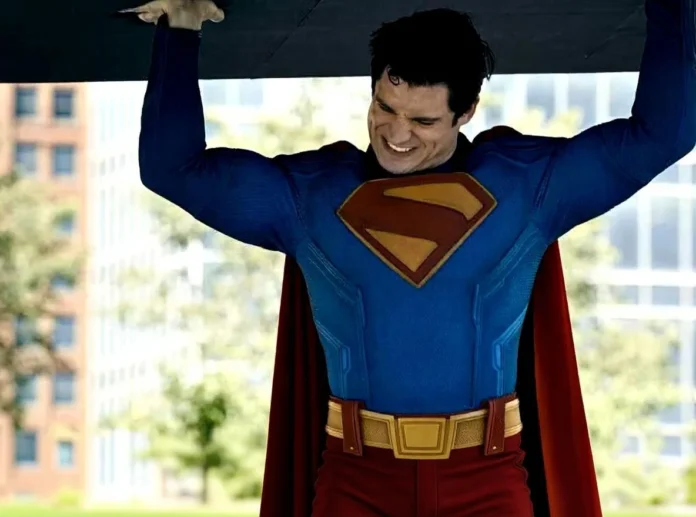Picture me in the ’60s: an awkward preteen hunched over comics, spellbound by Superman’s unwavering commitment to doing the right thing. Long before hashtags and online outrage, the Man of Steel was tackling slumlords and corrupt businessmen in bright Technicolor panels. Funny thing—today, people are up in arms over a so-called ‘woke’ Superman. But if you ask me, there’s nothing new here—just a new generation discovering what Superman’s been about all along.
Superman: The Original Champion of the Underdog (And Not Just in Tights)
Let’s get one thing straight: the “woke” Superman debate isn’t new. I grew up in the golden age of comics—back when Superman was the hero every kid wanted to be, before Batman’s TV antics stole a bit of his thunder. For me, the Superman Legacy has always been about more than just a cape and a catchy slogan. He was the embodiment of American values: truth, justice, and looking out for the little guy. And honestly? That’s as “woke” as it gets, even if we didn’t have a word for it back then.
Superman’s comic book roots are steeped in social justice themes. When he first appeared in 1938’s Action Comics #1, he wasn’t fighting aliens or supervillains—he was taking on corrupt landlords, abusive husbands, and crooked politicians. The Man of Steel was a blue-suited moral rebel, upending the status quo and defending the powerless. Research shows that these early stories were a direct response to the real-world struggles of the Great Depression, when ordinary folks were being exploited by those with money and power.
It’s wild to look back and realize that Superman was tackling issues like unfair working conditions, discrimination, and social inequality long before hashtags or Twitter debates. He’d bust into a slumlord’s office, toss the guy around, and demand better living conditions for tenants. He’d expose politicians who preyed on the vulnerable. These weren’t just comic book themes—they were reflections of what was happening in American neighborhoods, including mine.
Growing up, my own community had its own kind of everyday heroism. If you went on vacation, your neighbor watched your house. If you got into trouble, someone would let your parents know before you even got home. There was this sense of collective responsibility—a belief that we all looked out for each other. Superman, in his stories, was just a larger-than-life version of that same spirit. He stood for the idea that justice isn’t just a word; it’s an action, a choice we make every day.
Over the decades, Superman’s stories have continued to push boundaries. He’s advocated for immigrants and refugees, reflecting his own status as an outsider from another world. In the 1950s, Superman even starred in a PSA denouncing racism and religious discrimination, calling such prejudice “un-American.” More recently, in a 2011 storyline, he renounced his U.S. citizenship to become a global hero—showing that his commitment to justice transcends borders. These aren’t just comic book themes; they’re the very foundation of what makes Superman, well, super.
Some critics—like Dean Cain—have tried to politicize the new Superman Film, calling it “woke” as if that’s a bad thing. But honestly, if standing up for the oppressed and fighting for a better tomorrow is “woke,” then Superman’s been that way for over 80 years. As Dan Jurgens, one of the great Superman writers, put it:
“Superman stands for everyone. That’s what makes him a universal hero.”
So, when you watch the new Superman Film starring David Corenswet, remember: these American values—justice, community, protection—aren’t new. They’re the heart of the Superman Legacy, and they always have been.

From American Icon to Global Hero: Superman’s Evolving Legacy
Growing up in the 1960s, Superman was my go-to hero. Back then, he stood for Truth, Justice, and the American Way. That phrase wasn’t just a slogan—it was a promise. Superman’s earliest adventures had him fighting slumlords, corrupt businessmen, and anyone who preyed on the vulnerable. He was the champion of the little guy, the protector of the neighborhood, the embodiment of American values at their best. But as I’ve watched the Superman character evolve, it’s clear his legacy has grown far beyond the borders of America.
Let’s be honest—America in the comics was always meant to represent something bigger than itself. In those early stories, Superman was taking on issues that still matter today: poverty, injustice, and the abuse of power. He’d stand up for workers facing unfair conditions, call out discrimination, and even tackle the greed of big corporations. Superman’s legacy has always been about more than just waving the flag. He’s been a global hero long before it was fashionable to say so.
One of the most striking moments in Superman’s modern history came in Action Comics #900 (2011). In this controversial storyline, Superman renounced his U.S. citizenship. Why? Because he didn’t want his actions to be seen as American intervention. He wanted to help the world, not just one country. That’s a bold move, and it ruffled feathers. But it also showed that Superman’s first loyalty is to humanity, not borders. As Grant Morrison put it,
“Superman belongs to the world.”
Some folks saw this as a betrayal of American values. But if you look at Superman’s history, it’s actually a return to his roots. He’s always been about justice for all, not just for some. And let’s not forget—Superman is an immigrant himself. He rocketed from Krypton as a baby, adopted Earth as his home, and has always understood what it means to be an outsider. That’s why immigrant advocacy is woven into his story. He’s spoken out for refugees, stood up for the marginalized, and shown us the importance of inclusion. Research shows that Superman’s immigrant identity mirrors the changing conversations we’re having about who gets to belong and who deserves protection.
Even back in the 1950s, Superman was tackling racism and discrimination. There was a PSA where he called out racial and religious prejudice as “un-American.” That’s not “woke”—that’s classic Superman. He’s always been ahead of the curve, pushing us to be better, kinder, and more just.
So when people criticize the new Superman movie for being “woke,” I have to laugh. This isn’t new. Superman’s legacy has always been about fighting for a better tomorrow, for everyone. The world changes, and so does our hero. That’s what makes the Superman legacy so enduring—and so important, now more than ever.

‘Woke’ or Just Consistent? Superman, Modern Criticism, and the Power of Nostalgia
Let’s get real for a second. The recent uproar about the new Superman film being “woke” honestly makes me shake my head. I grew up in the golden age of comics—back when Superman was the ultimate symbol of “Truth, Justice, and the American Way.” For me, and for so many others, the Superman character was always about standing up for what’s right, no matter who was in trouble or what the world thought. If you dig into the early Superman comics, you’ll see a hero who fought slum lords, corrupt businessmen, and anyone who tried to exploit the vulnerable. He was the champion of the oppressed, the voice for those who didn’t have one. That’s not a new “woke” trend. That’s the DNA of Superman.
It’s almost funny—if it weren’t so frustrating—how people are suddenly shocked that a Superman film would tackle social justice themes. The truth is, Superman’s been doing this since day one. He’s taken on racism and discrimination head-on. There’s even a 1950 PSA where Superman calls out racial and religious discrimination as “un-American.” That’s not just a footnote in history; it’s a clear sign that the Superman character has always been about more than just punching bad guys. He’s been a symbol of hope, inclusion, and progress.
So, when I hear someone like Dean Cain—who, let’s not forget, played Superman himself—criticize the new film for being too “woke,” I can’t help but wonder if he’s watched his own show lately. By today’s standards, his Superman was pretty “woke” too. He fought for justice, stood up for the underdog, and challenged the status quo. It’s ironic, isn’t it? The same qualities that made Superman a hero back then are now being labeled as part of some “woke culture impact.” But as Ta-Nehisi Coates put it,
“Superman has always been political—the question is whose politics we notice.”
The current criticism swirling around the 2025 Superman film isn’t really about the Superman character at all. It’s more about our own shifting cultural politics and the ongoing culture wars. People are quick to slap a new label on something that’s been there all along, just because it fits today’s narrative. But research shows that Superman narratives have consistently tackled discrimination, challenged social norms, and advocated for a better tomorrow. That’s not “woke.” That’s just Superman.
Honestly, America, maybe it’s time we grow up a little. Instead of getting caught up in political labels, why not enjoy the Superman film for what it is—a story about hope, justice, and doing the right thing? Let’s remember why we fell in love with the Man of Steel in the first place. Go see the movie, be entertained, and leave the theater with a smile. Tell your kids that Superman is America—not because he’s perfect, but because he always tries to do what’s right, no matter how hard it gets. And that’s something we could all use a little more of these days.
TL;DR: Superman’s history is rooted in fighting for justice and uplifting the oppressed—long before woke became a buzzword. Don’t buy the backlash—enjoy the movie, celebrate Superman’s legacy, and let heroes inspire us to be better.
#Superman2025, #DavidCorenswet, #JamesGunn, #SuperheroMovies, #ComicBookCulture, #TruthJustice, #ModernMyth, #GlobalHero, #AmericanValues, #WokeDebate




